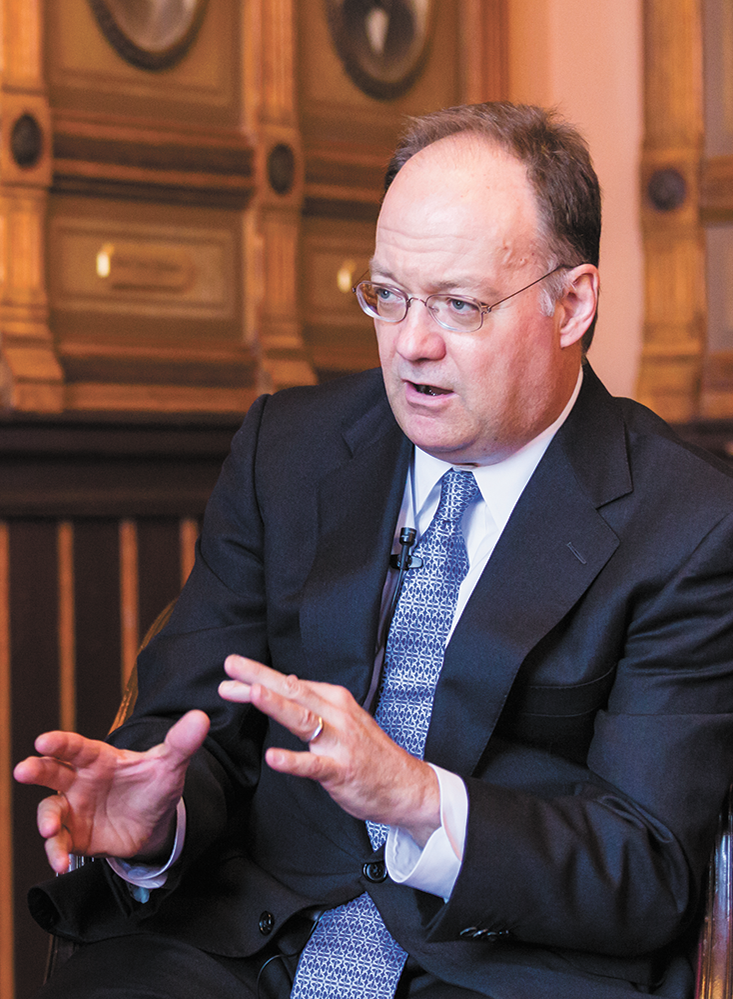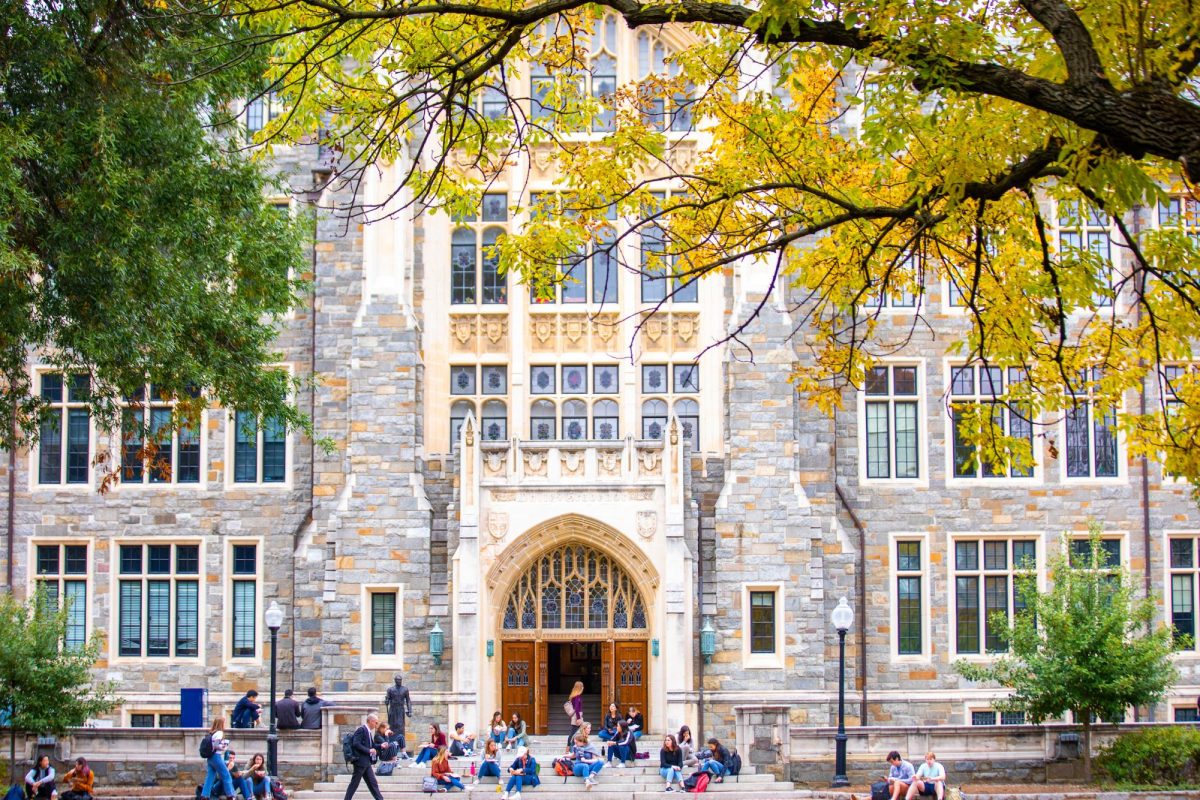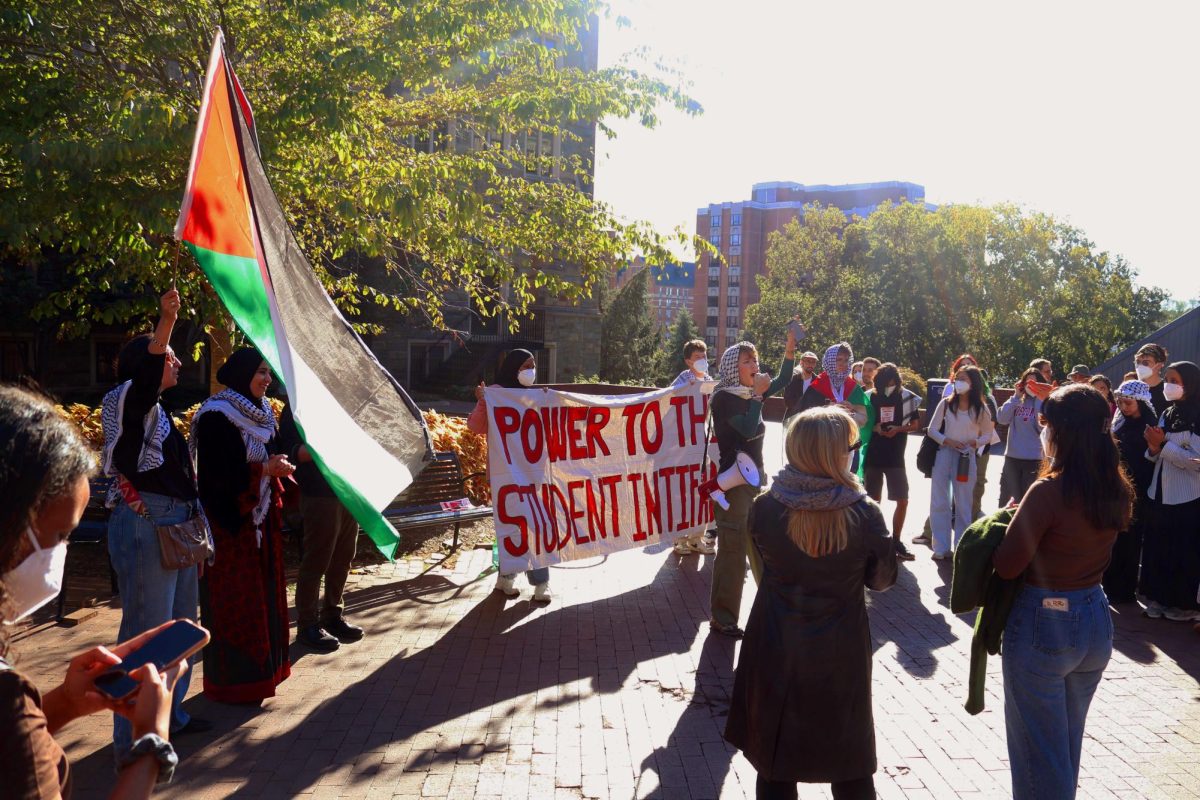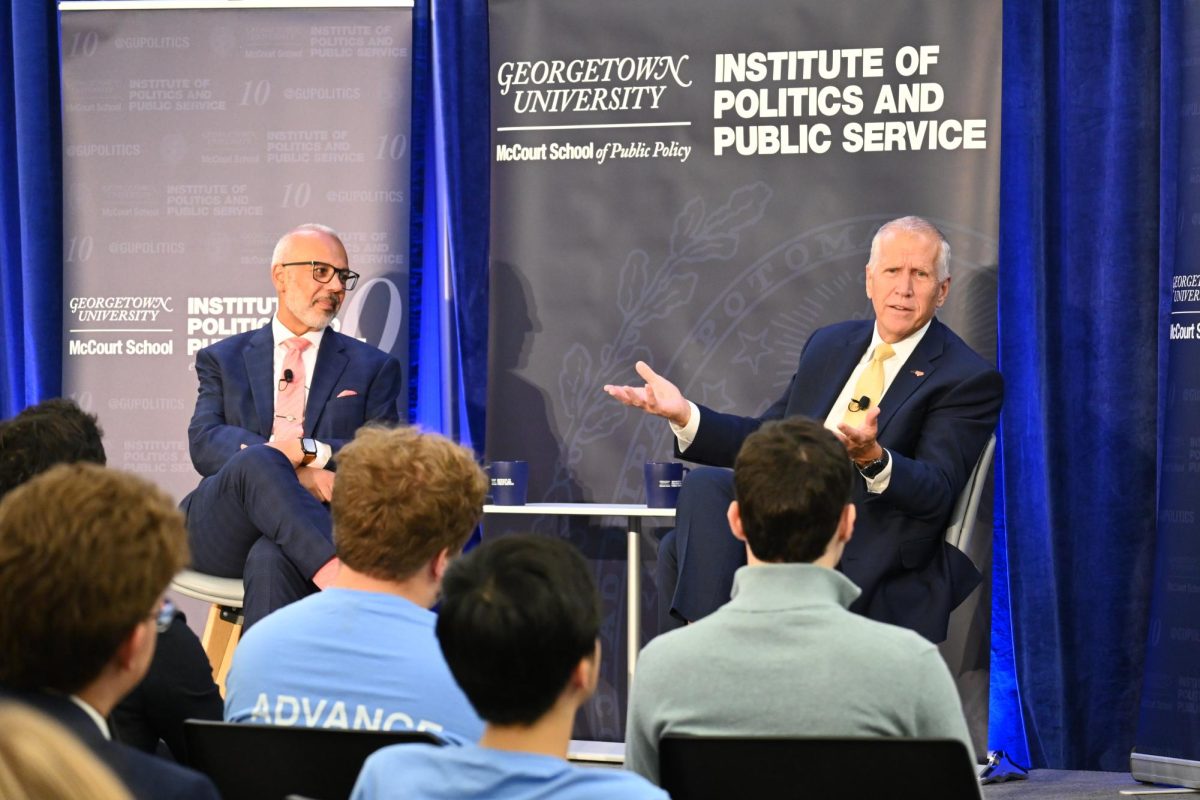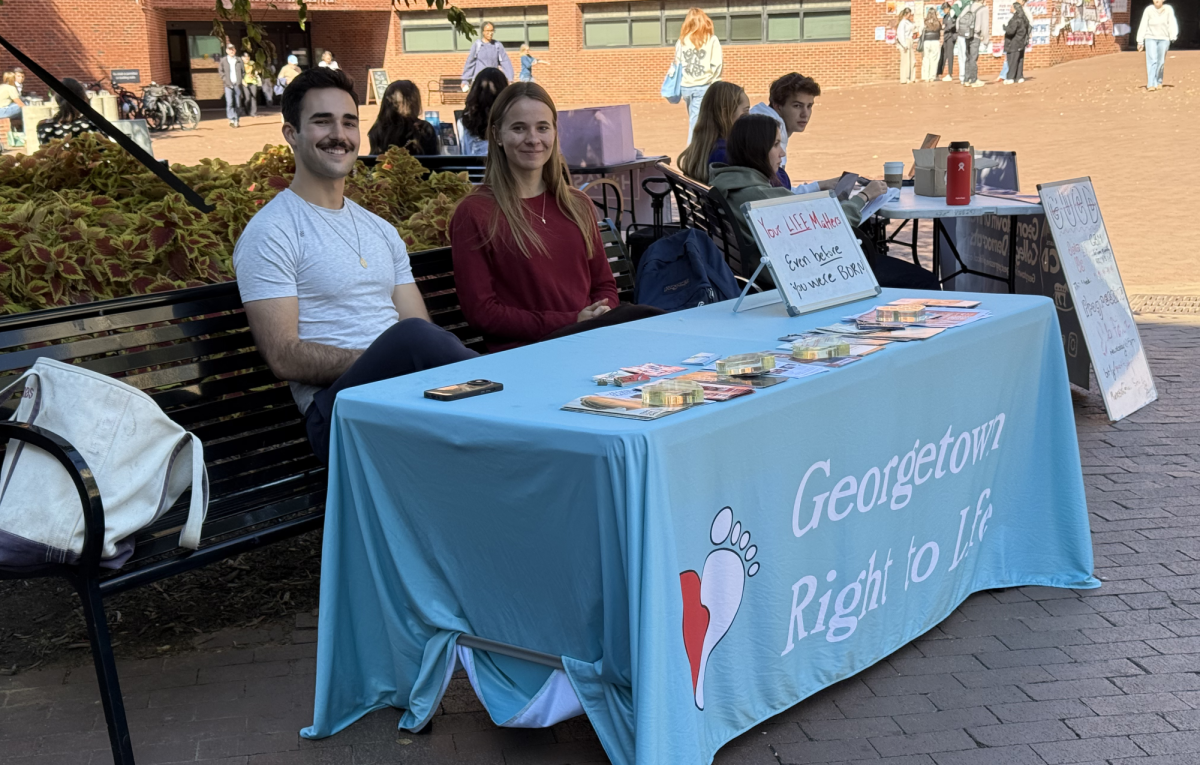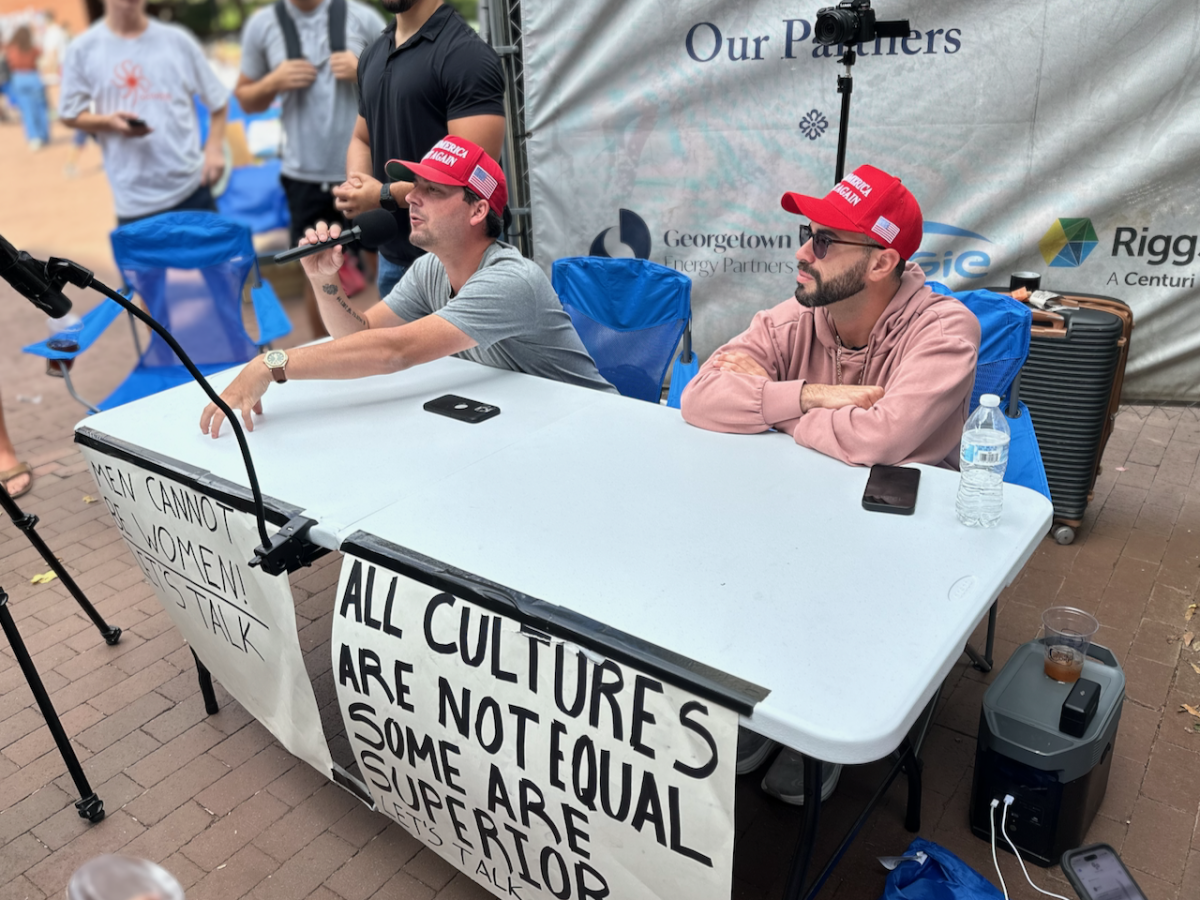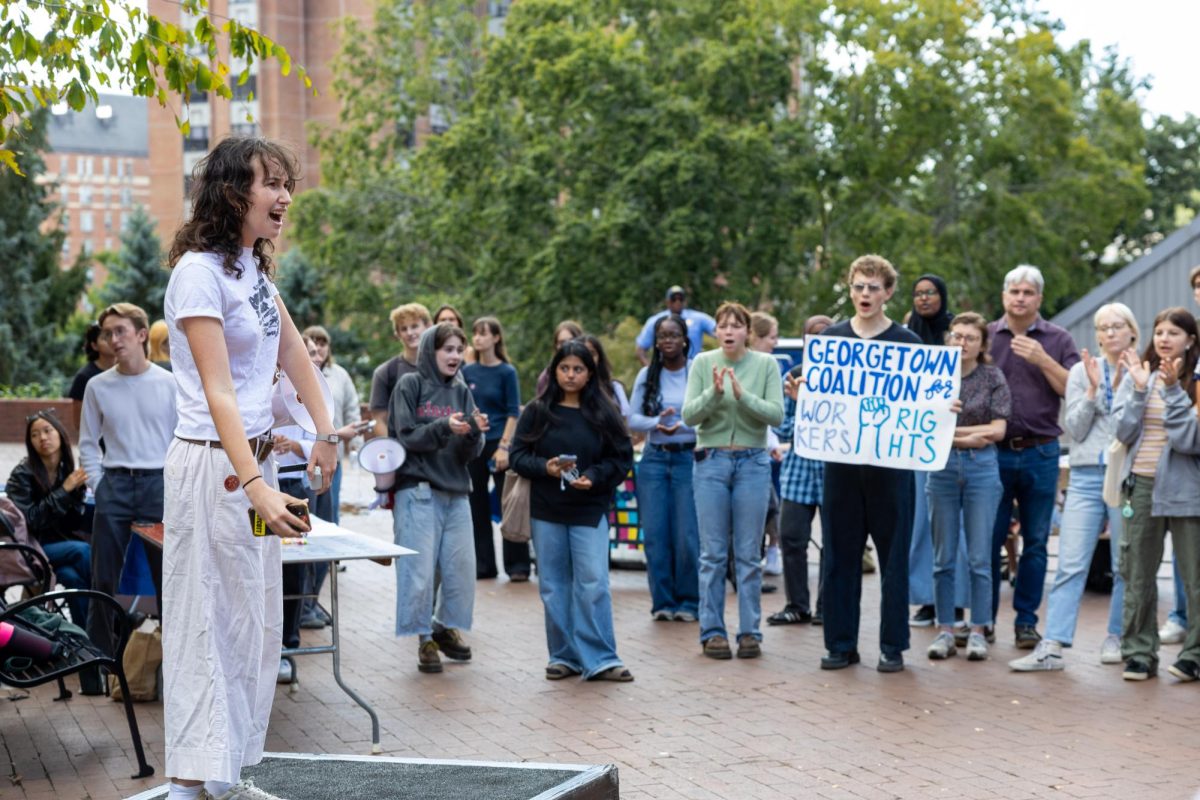John J. DeGioia (CAS ’79, GRD ’95) will step down as president of Georgetown University, effective immediately.
DeGioia, Georgetown’s longest-tenured and first lay president, announced his decision in an email to community members Nov. 21. He cited his June 5 stroke and need to focus on continuing his recovery as his reasoning for stepping down.
“I write today to express my gratitude for the opportunity I have had to lead Georgetown over these past 23 years and to share with you the most difficult decision I have ever made: I have informed the Board of Directors that I will be stepping down from my role as the President of Georgetown,” DeGioia wrote in the email.
The email is the first news of DeGioia’s health since Aug. 15. The university has not released details about the severity of DeGioia’s stroke, and a university spokesperson did not respond to requests for details when asked in June and November.
Robert M. Groves, the university’s provost who has been the unofficial interim president since June, will officially serve as interim president while the search for a new president begins with an end goal of July 1, 2026, according to the email. DeGioia said he plans to serve as president emeritus of the university.
The email additionally announced that Joseph A. Ferrara (GRD ’96), vice president of Georgetown and DeGioia’s chief of staff, would serve as the university’s senior vice president and chief of staff.
“It is hard to put in words the depth of Jack’s impact at Georgetown. Since first arriving on campus as an undergraduate student in 1975, Jack has spent his entire career at Georgetown and has helped shape every facet of the University,” Thomas A. Reynolds (GSB ’74), chair of the Georgetown board of directors, wrote in the email.
DeGioia began his tenure as president of Georgetown in July 2001, after serving in various administrative roles at the university. DeGioia was the first president of a U.S. Jesuit university to be a layperson, rather than a member of the Society of Jesus.
DeGioia oversaw the formation of the first new school in nearly 60 years, the McCourt School of Public Policy, when it was established in 2013, a new campus in Qatar in 2005 and the development of the Capitol Campus.
“In many settings over the years, I have shared with you the great hope I have for the future of this University and how we will continue to be ever more true to our mission and purpose,” DeGioia wrote. “This responsibility is one that each of us shares by virtue of our membership in this community.”
DeGioia also oversaw the increase of the financial aid budget to $284 million as of 2024 and the growth of the endowment from $700 million in 2001 to $3.6 billion in 2024, raising the university’s ranking from 70th to 44th in higher education endowments.
“Under Jack’s leadership as President over the past 23 years, Georgetown University has grown and flourished as a global leader in higher education,” Reynolds wrote. “With a deep commitment to academic excellence, research, student formation and its Jesuit and Catholic identity, Jack has helped to position Georgetown as a force for good in the world.”
As president, DeGioia promoted efforts to foster religious diversity and dialogue, create access for all students — including LGBTQ+ and disabled students — and advance sustainability on campus.
Among the initiatives established during DeGioia’s tenure was the university’s Working Group on Slavery, Memory and Reconciliation, which led Georgetown to issue a public apology in 2017 for the sale of 272 enslaved children, women and men by the Jesuits who ran Georgetown in 1838.
“We cannot hide from this truth, bury this truth, ignore this truth. Slavery remains the original evil of our republic, an evil our university was complicit in,” DeGioia said in 2017. “We do not seek to move on with this apology, but to move forward with open hearts to respond to urgent demands of justice that are still present in our time.”
DeGioia was also one of the first U.S. university presidents to call for a ceasefire in Gaza in April, saying Palestinians must receive safety and resources and the hostages must be released.
“In the Middle East, it begins with access to humanitarian aid, the return of the hostages and an immediate ceasefire in Gaza,” DeGioia wrote April 1. “And we must recognize that so much more will be required if we can support the choices of ‘life … reconciliation … justice … relationship … dialogue.’”
DeGioia wrote that serving as the president of Georgetown was the privilege of his lifetime and that the roles he held at Georgetown were authentic to his vocation.
“All of us can find reassurance in knowing that we share in this work together and that, over many generations, we have built the type of community that will enable Georgetown to thrive for years to come,” DeGioia wrote in the Nov. 21 email.


